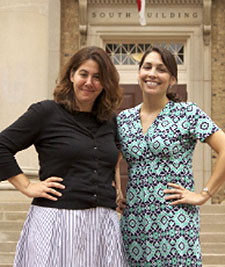- Membership
- Perks and Discounts
- Things To Do
- Resources
- News
- About
- Shop
Related Content
Former School of Government Dean Receives Holshouser Award
March 19, 2024
This article was updated March 20, 2024. Mike Smith ’78 (JD), dean emeritus of the...
Read MoreThe Business of Caring
March 8, 2024
The American economy is confusing. Growth is up, but consumer confidence is down. Inflation is...
Read MoreRenovate Smith Center or Build New Arena?
March 1, 2024
The athletics department is considering either renovating the 38-year-old Dean E. Smith Center or building...
Read More-
2024
-
2023
-
2022
-
2021
-
2020
-
2019
-
2018
-
2017
-
2016
-
2015
-
2014
-
2013
-
2012
-
2011
-
2010
-
2009
-
2008
-
2007
-
2006
-
2005
-
2004
- Academics and Athletics
- Admissions
- Alumni Profiles
- Alumni Recognition
- Around Town
- Arts
- Books
- Campus Profile
- Campus Safety
- Carolina Alumni Awards
- Carolina Alumni Leadership
- Carolina Alumni Programs and Outreach
- Carolina Alumni Reunions
- Carolina Alumni Review
- Celebrations
- Championships
- College and Costs
- Commencement
- Coronavirus
- Discovery
- Extracurricular
- Faculty
- Faculty Awards
- For the People
- Go Heels
- Greek Life
- Hark the Sounds
- Higher Education
- Homecoming
- In Class
- In Memoriam
- Innovation and Technology
- Issues
- Object Lesson
- On View
- Our Treescape
- Philanthropy
- Podcast
- Public Service
- Race and Reckoning
- Research
- Sexual Assault
- Silent Sam
- Sports
- Structures
- Student Achievement
- Students
- Timelines
- Tuition and Financial Aid
- UNC Libraries
- UNC’s History
- Undergraduate Spotlight
- University Achievements
- University Awards
- University Budget Issues
- University Development
- University Leadership
- University News
- University Rankings
- What We Do
- Who We Are
- Young Alumni
- Yours at Carolina
Carolina Receives Grant Aimed to Boost Undergraduate Retention in U.S.
Posted on Oct. 1, 2014Carolina has been selected to help the U.S. once again be first in the world in college graduates.

Abigail Panter, left, is senior associate dean for undergraduate education and Project Finish Line’s principal investigator. Cynthia Demetriou, director of undergraduate retention, is the executive director.
Abigail Panter, senior associate dean for undergraduate education and a psychology professor, will receive $3 million over four years to develop her Finish Line Project, designed to improve undergraduate retention.
The grant comes from the Department of Education’s new First in the World program, created to drive innovations in higher education that increase college completion, value and affordability.
Of nearly 500 applications, 24 schools were selected to receive a share of the fund’s initial $75 million. Grants ranged from $1.6 million to $4 million. Each of the winning projects addresses at least one of these priorities: increasing college access and completion, increasing community college transfer rates, increasing STEM (science, technology, engineering and mathematics) enrollment and completion, and reducing time to completion.
The Finish Line Project is a program for first-generation college students — including rural, transfer and historically underserved students — that includes curricular innovations, outreach and support, and pathways for timely and affordable degree completion. Campus partners for the project are the Center for Faculty Excellence, the American Indian Center and the School of Education.
The most effective retention and degree completion programs require many different approaches and campuswide interventions, said Panter, the grant’s principal investigator.
“Fortunately, we are at an ideal time at our University with multiple ongoing efforts to redesign key introductory courses, improve access to high-impact academic experiences and provide proactive, intensive academic support to our students.”
At Carolina, about 20 percent of undergraduates, or a little more than 3,000 students, are first-generation college students, who are twice as likely as non-first-generation students to leave college before the start of the second year. Graduation rates also are much lower for these students. Barriers include insufficient academic preparation, the need to work to pay for education, cultural differences and lack of family support.
Students transferring from community colleges and majoring in STEM fields are at particular risk of not finishing their education.
Other resources included in the grant are curriculum mapping of community college STEM courses with UNC science courses; proactive, intensive academic advising starting before enrollment and continuing throughout a student’s time at the University; individual and group tutoring; creating faculty learning communities to encourage experimentation and collaboration; student success seminars; and professional development opportunities.
© 2024 Carolina Alumni
